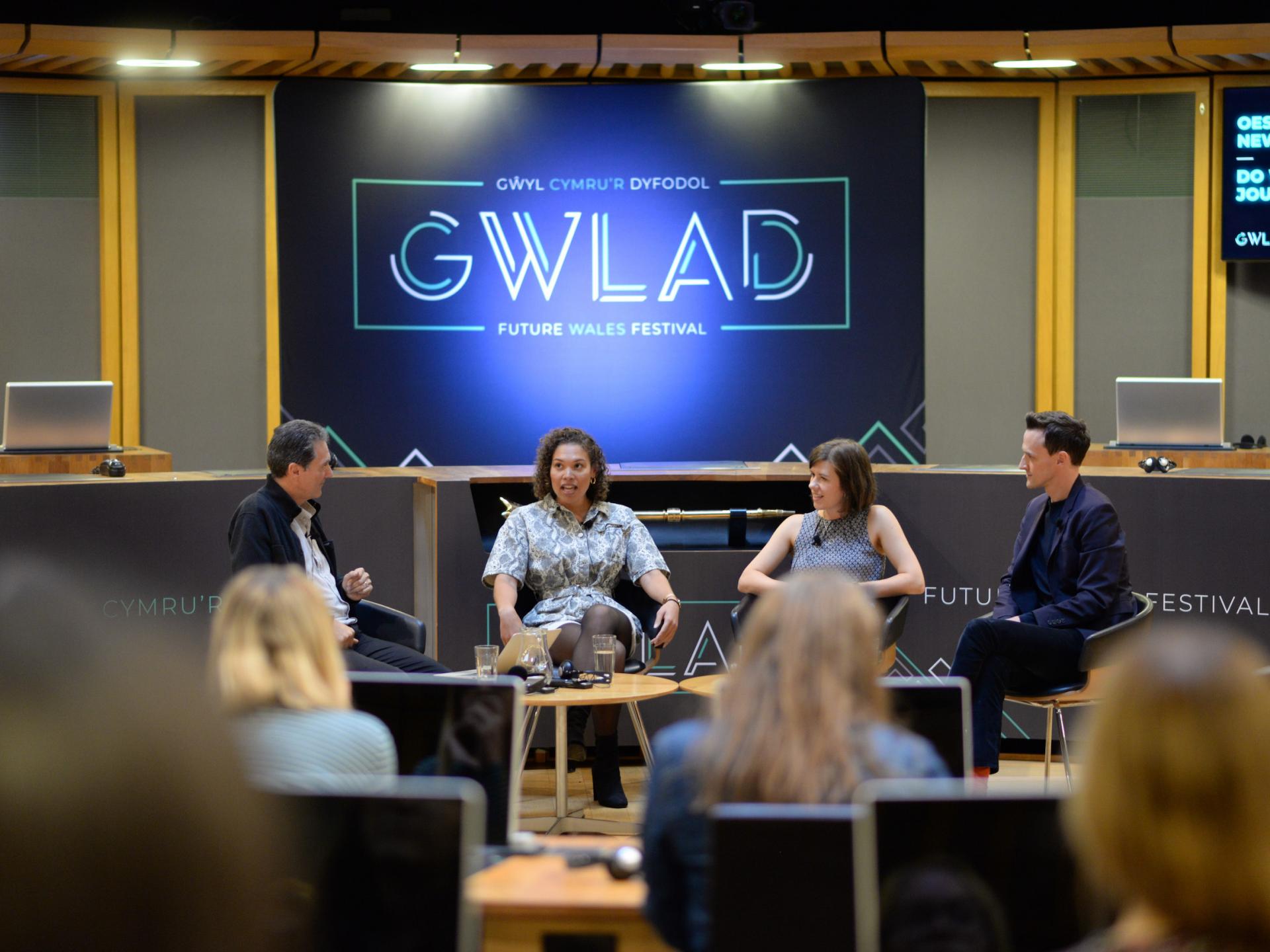As part of the Welsh Assembly’s Democracy Festival, GWLAD, Clwstwr Director and Professor of Communications and Creative Industries at Cardiff University’s School of Journalism, Media and Culture Justin Lewis, chaired a panel of young journalists at the Assembly.
The lively discussion tackled some of the most pressing the challenges facing journalism today with BBC Radio 4 & BBC Worldwide’s Seren Jones, Channel 4 News’ Ciaran Jenkins and BBC Cymru Wales’ new Westminster correspondent, Catrin Haf Jones sharing their views.
The debate, which can be seen in full on the GWLAD website, covered issues of impartiality, truth, diversity and how devolution is reported by the media in Wales and across the UK.
Professor Lewis commented on the importance of the festival and engaging young people with news:
"It was important to mark the 20th anniversary of devolved government in Wales as it gave us an opportunity to celebrate the achievements, reflect on the challenges and discuss what our ambitions for the next decade might be. It also gave us the opportunity to discuss the issues that we're facing as a society today, one of those being the challenges in news and journalism.
It was interesting to hear how younger journalists see the role of the news media, and, in particular, to discuss their ideas for engaging young people in news and public affairs. This is a key issue for broadcasters as younger audiences are abandoning broadcast news in their droves for the uncertain world of the wild web. We need to find new, more engaging ways to tell stories for the digital generation, and young journalists will be key to that effort."
Seren Jones, said about diversity in journalism: “I’d like to see more diversity in the newsroom. The journalism industry is 94% white and 55% male. I’m not even talking about diversity in gender, race, sexuality, but diversity of thought. People who have different experiences, people who you may never think about bringing into the industry because there’s no disadvantage of a diverse newsroom. It would solve a lot of the mainstream media outlets’ problems if we just started to reflecting society.”
Ciaran Jenkins, on reporting on devolution in UK media: “I don’t think devolution is an attractive word that audiences necessarily like. If we talked instead about communities and people and their lives across the UK that would be probably more helpful. And if you think about where most journalists are, that is in London and the south east of England. People living in the south east of England writing for newspapers, read by journalists who decide the broadcast agenda for the day the challenge for broadcasters is to try and step out of that.”
Catrin Haf Jones, on reporting on devolution in UK media: “On a UK level I don’t think broadcasters are particularly good at it. London based network isn’t good at it. I work for the BBC, but I can look at it objectively. Question Time broadcast from the Senedd this week and we didn’t hear a mention of devolution or devolved issues until the final three minutes. It should have been brought in sooner. A lot of audiences in Wales get their news from network programme and so it’s doing a disservice for viewers across the board. There’s room for improvement.”
Exploring new ways of telling stories and engaging new audiences with news is central to the Clwstwr programme. A number of the Clwstwr 2019/20 cohort projects focus on innovating the news industry including Monnow Media’s News Storytelling through Modular Journalism, Tinint’s FutureNews Labs, Caerphilly Observer’s CaseFinder, Core’s Schools News and AMPLYFI’s AI in the Newsroom.
You can check out all the GWLAD events noting 20 years of devolution on their website.

